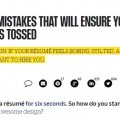
“What Kind of Salary are you Seeking?”
By Kurt Schmidt In Blog On February 4, 2017
“How much money are you looking for?” or “What kind of salary are you seeking?”
If not the most dreaded question during an interview, this one, no matter how it is phrased has to be in the top three. And yet, if you stop and think about it, the answer is easy. Would you ever agree to a price for anything without knowing what it is? Your compensation is the price you’re charging for the service you’re providing. If the service you’re providing is to fulfill the needs of a specific job, then shouldn’t you know everything about that job before agreeing to a price?
What if I told you I’d pay you $100,000.00 to mow my lawn but you could only use a manual push mower? Sounds like a pretty good opportunity doesn’t it? Get some exercise, earn some money, how hard could it be? Well, if my lawn is a normal quarter acre or so, then sure, this is a great opportunity. However if my lawn is 50,000 acres of hilly wild land, maybe $100,000.00 to do it by hand isn’t such a good offer.
In a way, that scenario is similar to what any candidate faces when they are asked about their salary requirements at the beginning of or even during a job interview. It’s not really reasonable to have to put a number on before all the other cards are on the table. Often companies push to get a number – and that’s a mistake, for everyone. Candidates who give specific numbers are always wrong (too high or too low). Companies that insist on numbers too early won’t really know if the number they get is a good value until after the interview anyways and usually only succeed in creating more anxiety by pushing the issue. Even so, the question comes up a lot.
What’s the right answer? This is what you say: “I am currently earning or was previously earning (give the specific amount per hour, month, or year)” and stop talking! If they ask what it would take for you to join them repeat your current or previous compensation level and say that you are looking for a long term career opportunity and would be very excited for a chance to review an offer after the interviews. Then what? Stop talking! The key is to keep the answer short and direct, then try to move the conversation back to their needs and goals.
Can you get away with this? Yes, if you have managed all the previous steps of your job search correctly then your current compensation shouldn’t be a surprise to your potential employers. In addition, they should already be expecting to have to exceed it in order to hire you because that’s how the world works. It is no secret that candidates seek new jobs in order to improve upon their current circumstances. If a potential employer is surprised by a your current compensation level then there’s a good chance you’re not interviewing for the right job – and, sorry to say, that’s your fault.
If a potential employer wont’ let you get away without giving a number or doesn’t respect your desire to know everything about the job before talking about compensation, then perhaps you don’t want to work for them.
(Photo: Monument Valley, Arizona / Utah 2013)








